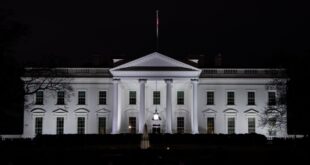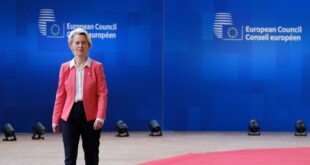Shehab Al-Makahleh
On December 5, 2017, Iraqi Prime Minister Haidar al-Abadi, announced that provincial and parliamentary elections will be held on May 12, 2018; yet, many domestic events and regional developments would delay the elections as the Iraqi community is undergoing many societal and economic as well as political hardships.
As the date of Provincial Councils and the House of Representatives elections is approaching, some Iraqi leaders started to call for further procrastination due to two reasons: The first is the bad financial situation in the country, and the second is the that more than four million displaced Iraqis have been sheltered in various places of Iraq which are not part of their original constituencies. They will not be able to return to their homes in the coming few months. That would force the government to announce the postponement.
However, the pace of political events in Iraq is at present accelerating especially after the defeat of ISIS at a time the activities and movements of political blocs and parties started to set up the platform for the upcoming elections. Though the year is closing its final chapter with many turbulent incidents in North Africa, the Levant, Iraq, the Arabian Peninsula, Iraqis are highly affected by the regional powers, steering the outcome of the political scene in Iraq for the coming years.
Despite the lack of an appropriate environment to hold such elections due to logistic and technical hardships, the political conflict has intensified in recent weeks and reached unprecedented levels, with some visits of shuttle tours of some politicians to the provinces where they announced they would start their electoral campaigns.
Corruption and terrorism
Some politicians resort to the public to gain political support and others resort to blaming other political figures for the failure of Iraqi economy and its political achievements. In Iraq, the process of forming blocs and electoral lists is supported by regional players. After his success in liberating Iraq, al-Abadi, started to gain more confidence and people started to trust him more. The war on ISIS has lasted three years, but the war on corruption needs more than that to liberate the state and purge it because corruption is not only political, but administrative and financial. Thus, war on corruption is more difficult than the war on a terrorism. And any political figure who will have these slogans on his election campaign would gain many votes that help him form the government.
Iraq is now a relatively in a good security situation compared to previous years, which has been culminated with opening its borders with Jordan and the resumption of flights to Iraq from various countries. Abadi’s visits to some neighboring Arab countries has helped Iraq regain its stability and its security amidst calls that Iraq restores its pre-1991 status at the regional level, which has been in the orbit of the Arab countries rather than Iran. Under al-Abadi, Iraqi is regaining its Arab identity; yet, there should be many changes at the political spectrum in order for Iraq to be off Iranian control which includes amongst other things a new block that entails both Sunnis and non-Sunnis including Shiites and Christians as well as other minorities in order to change the Iraqi political map.
The Iraqi political parties are holding their conferences in preparation for the electoral process. The question here is: Are political figures quitting major Iraqi blocs or defecting due to their dismay over old blocs’ performances. Are the new political figures going to succeed in convincing the Iraqis at the ballots?
Iraq’s Sunnis have been badly affected in the past few years and at present many of them are facing challenges, stemming from strained ties with Baghdad and the sectarian tensions caused by the Shiite-dominated Popular Mobilization Front. To many observers, Sunni population are detached from Sunni leaders in Baghdad, granting Abadi a better chance to win in the coming elections as he is regarded by many Sunnis and Shiites as a compromise between various blocs.
Former Iraqi Prime Minister Nouri al-Maliki finds himself isolated from the rest of Iraq’s political blocs. Badr bloc has recently announced it will run as one independent party. Representatives of the Popular Mobilization Front, known as “Al Hashd Al Sha’abi”, are running for the elections as well. Badr, Iraq’s largest militia group which is led by Hadi Al Amiri, is establishing a political coalition to take part in 2018 elections.
The early preparation of these blocs and political lists is a clear tough competition between political parties and blocs with the opportunities of al-Abadi to win for the second term as he is supported by Arab and other countries against his rival leader former Prime Minister Nouri al-Maliki and other opponents. The competition between all these forces will be reflected on the nature of political life in Iraq. The coming government of Iraq will get rid of the concept of hegemony and control of Iraqi political decision, paving the way for building the new Iraq without any foreign interventions into its domestic affairs.
Whether the elections will be held on the scheduled date or not, Abadi, depending on his victory over ISIS and his attempts to counter corruption, will be able to free Iraq of uni-polarity and dominance of one party, opening the door wide open for other parties and blocs to joint in efforts to build Iraq.
_____________
Shehab Al-Makahleh is Director of Geostrategic Media Center, senior media and political analyst in the Middle East, adviser to many international consultancies. He tweets at: @shehabmakahleh and @Geostrat_ME
Cover photo: Iraqi Prime Minister Haider al-Abadi giving his speech marking the end of the war against the Islamic State (IS), Dec. 9, 2017. (Photo: Abadi Press Office)
Originally published by Al-Arabiya
 Geostrategic Media Political Commentary, Analysis, Security, Defense
Geostrategic Media Political Commentary, Analysis, Security, Defense





